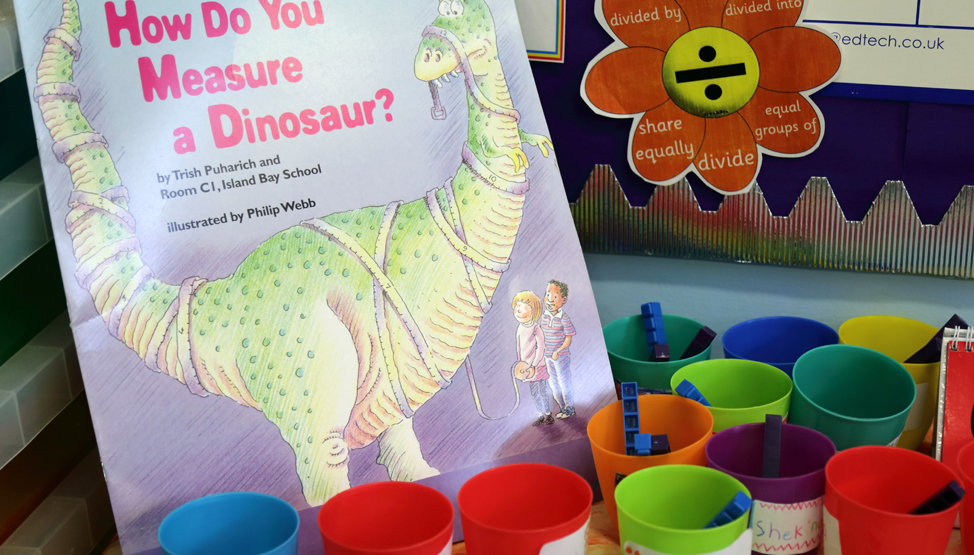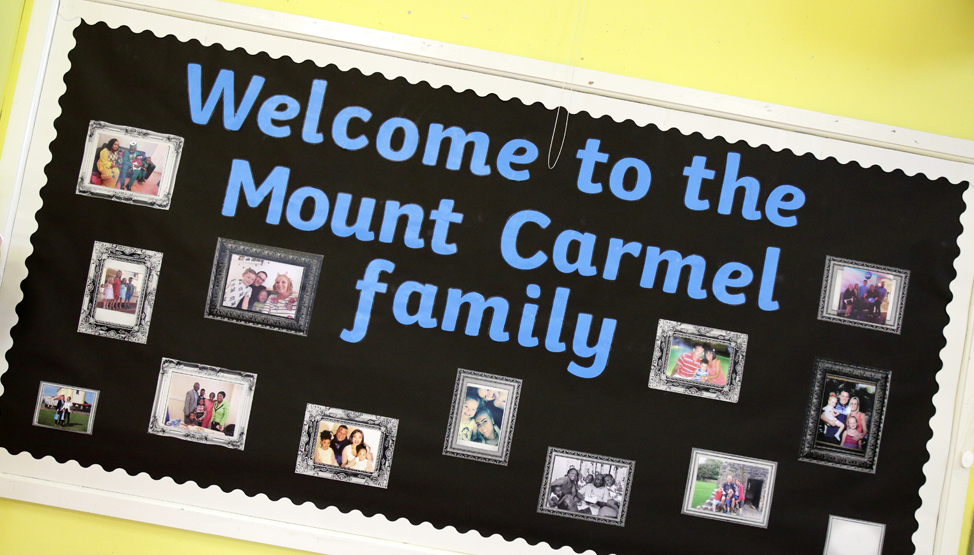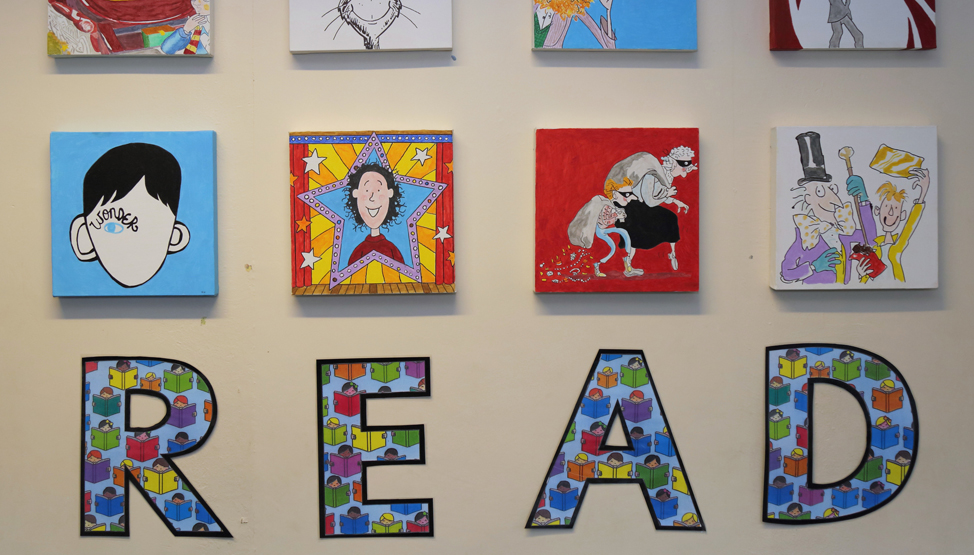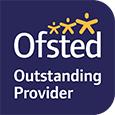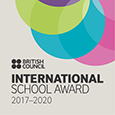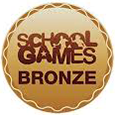PHSE and RSE

PSHE and RSE Statement 2023-24
Intent
PSHE (Personal, Social, Health and Economic) education and RSE (Relationships and Sex Education) is a crucial part of a child’s education. It gives children the critical skills and knowledge about themselves and the diverse world around them so that they can thrive, both now and in the future. It includes helping them to deal with critical issues they face every day such as friendships, emotional well-being and change. By accessing a carefully designed and adapted PSHE and RSE curriculum children are better equipped to face whatever challenging opportunities lie ahead and can face the world of uncertainty with hope.
At Mount Carmel, we aim to ensure that all children, including those with SEND, are given experiences that allow them to develop their understanding of themselves and God’s world around them. Our curriculum is broad and balanced and is specifically adapted to meet the needs of our children, each made in the image and likeness of God, taking into account their varied backgrounds and lived experiences.
At the heart of everything is our mission of Truth, Love and Living Life to the full. Our PSHE and RSE curriculum shines a spotlight on this mission: children learn to understand more about God’s world and their role in His wonderful creation; children develop their understanding of feelings and emotions; and children are given the tools so that they can live fulfilling lives. Furthermore, our PSHE curriculum is guided by our curriculum drivers with each one sitting at the heart of the PSHE and RSE curriculum: good communication, healthy lifestyles, sound knowledge, lifelong aspirations and a deepening faith life.
We aim to promote children’s knowledge, self-esteem, emotional wellbeing and resilience and to help them to form and maintain worthwhile and positive relationships. Children will be taught to have respect for themselves and for others within our school, local, national and global community.
We aim to develop key character skills, including decision making, informed risk taking, good communication and self-regulation techniques. We encourage the exploration of, and respect for, different cultures, faiths and groups within our local community – promoting positive attitudes towards differences. Additionally, we affirm honesty and respect in all relationships and nurture sensitivity to the needs and feelings of others.
We aim to enable children to develop a deepening knowledge of health and wellbeing, including mental health as well as physical health. Our PSHE and RSE provision is also key in promoting the spiritual, moral, social and culture (SMSC) development of pupils. We aim to equip our young people with the information, skills and values to understand, and be able to cope with, the physical and emotional changes that occur with puberty. In year 6 children will be provided with an understanding of reproduction, both the physical scientific knowledge as well as an understanding of reproduction as part of a healthy relationship. The information provided will always be appropriate to the age and needs of the children.
At Mount Carmel, we prioritise the development of the whole child, ensuring that children leave us with the knowledge, understanding and skills to live fulfilling lives.
Implementation
Our PSHE and RSE curriculum is delivered both through a bespoke pathway, with weekly lessons in class, as well as through our daily teaching, assemblies, interactions and personal development opportunities. The curriculum has been carefully mapped out by using the RSE scheme ‘Life to the Full’, with units and sessions allocated to specific year groups to ensure a well-sequenced curriculum design, and additional units added for environmental education and financial capability.
‘Life to the Full’ is a fully resourced Scheme of Work for Catholic primary schools which embraces and fulfils the new statutory curriculum. Taught with a spiral approach to learning, in which pupils will revisit the same topics at an age-appropriate stage through their school life, the programme includes teaching about personal health, physical and emotional wellbeing, strong emotions, private parts of the body, personal relationships, family structures, trusted adults, growing bodies, puberty, periods, life cycles, the dangers of social media, where babies come from, an understanding of the Common Good and living in the wider world. The entire teaching is underpinned with a religious understanding that our deepest identity is as a child of God – created, chosen and loved by God. The programme is fully inclusive of all pupils and their families.
We have carefully adapted Life to the Full so that specific units are taught in year groups where they are most appropriate and promote a progressive approach. In addition, we have added additional units of financial capability and environmental education to each year group to ensure we are covering the whole of the PSHE curriculum. Again, each of these units are progressive and sequential so that each year the learning is built on.
In PSHE and RSE lessons there is not an expectation to always plan for written tasks – often sessions will involve discussions and question opportunities but will not require a written task. However, each unit will have at least one written piece of evidence to illustrate children’s understanding.
PSHE and RSE education will be provided to all children within our school. Children with SEND will be supported to access health, relationships and sex education through high-quality, teacher-led quality first teaching, following the guidance of the SEND code of practice. Teaching will be differentiated and personalised to suit their individual context.
It is essential that we help children and young people develop confidence in talking, listening and thinking about our bodies, changes, relationships and sex, in line with DFE guidance. This is, of course, in line with their year group teaching from the programme. Whilst teaching, certain strategies are used in order to develop this confidence. These include:
[a] Creating ground rules – Creating a set of ground rules to help teachers create a safe environment in which they or pupils do not feel embarrassed or anxious about unintended or unexpected questions or comments from pupils.
[b] Distancing Techniques - Teachers avoid embarrassment and protect pupils’ privacy by always depersonalising discussions.
[c] Dealing with questions – Teachers establish clear parameters of what is appropriate and inappropriate in a whole class setting.
[d] Discussion – discussion encourages learning and is enjoyed by pupils. Pupils take part in structured activities in which they can:
- draw on previous knowledge to develop more understanding;
- practise their social and personal skills;
- consider their beliefs and attitudes about different topics;
- reflect on their new learning;
- plan and shape future action.
[e] Reflecting - reflecting is crucial for learning as it encourages pupils to consolidate what they have learned and to form new understanding, skills and attitudes. Teachers will help pupils reflect on their learning by asking appropriate questions.
Assessment is essential to the effective teaching of PSHE and RSE. The learning we wish to assess will relate to the pupils’ attributes and skills, as well as their knowledge and understanding related to the topic. Assessment may be carried out through baseline and endline assessments at the start and end of lessons, and also at the start and end of units. Opportunities for prior knowledge to be identified is usually planned for within the Life to the Full scheme. Often these will take place through assessment for learning strategies rather than summative assessment tasks. Pupils’ thoughts and feedback are valued, and they are encouraged to use their voices to inform the plan-teach-assess cycle. All children have a right to be heard. As with all other subjects in our school, Flashback retrieval questions and Sticky Knowledge Challenges are used in order to promote a strengthening of the connections within pupils’ long term memory.
In addition to weekly lessons, regular assemblies are held which focus on a particular area of PSHE. These include internet safety, British Values and key awareness dates (e.g. Anti-Bullying Week or World Mental Health Day). Furthermore, we offer a range of opportunities throughout the year which allow children to develop many skills that will be important to them in later life. These include:
- School Council
- Elections
- GIFT (Growing In Faith Together) Team
- Eco Club
- Mount Carmel’s Big Sleep In
- Drama Therapy
- Emotion Wellbeing Drop-in Sessions
Impact
The impact of a good PSHE education cannot be understated. Quite simply, it forms the preparation for adult life, enabling a child to understand and face the challenges, complexities and questions that arise in a diverse world. Impact can be measured in a variety of ways. At Mount Carmel, we recognise and celebrate the importance of the child’s voice, and their individual experience of PSHE education. Pupil voice, and lessons captured through both written and oral responses, will form the heart of how we measure the impact of our teaching. The skills that children at Mount Carmel will develop will include, but are not limited to:
- An understanding of their inherent, indivisible, inalienable unconditional and universal rights, and how these rights can and should be protected
- An understanding of our diverse and complex world, and an empathy and respect for the rights of all individuals
- Positive and constructive communication, with highly developed oracy skills
- Resilience and self-regulation, and a keen understanding of their own health and wellbeing, especially supporting their mental and emotional development
- Risk management and balanced decision making, within the context of a changing and challenging world.
These skills are transferable to all other areas of the curriculum, and will help children to understand these areas in new ways. Additionally, these ‘soft skills’ form the basis of a child’s wider development and experience. The ability to see themselves as children of God, recognise and develop good relationships, the reinforcement of positive mental and physical health, understanding how their body will change and grow, the development of respect and tolerance for all, an understanding of society and the role of the individual in a community – these are the skills that will equip our children for life.

